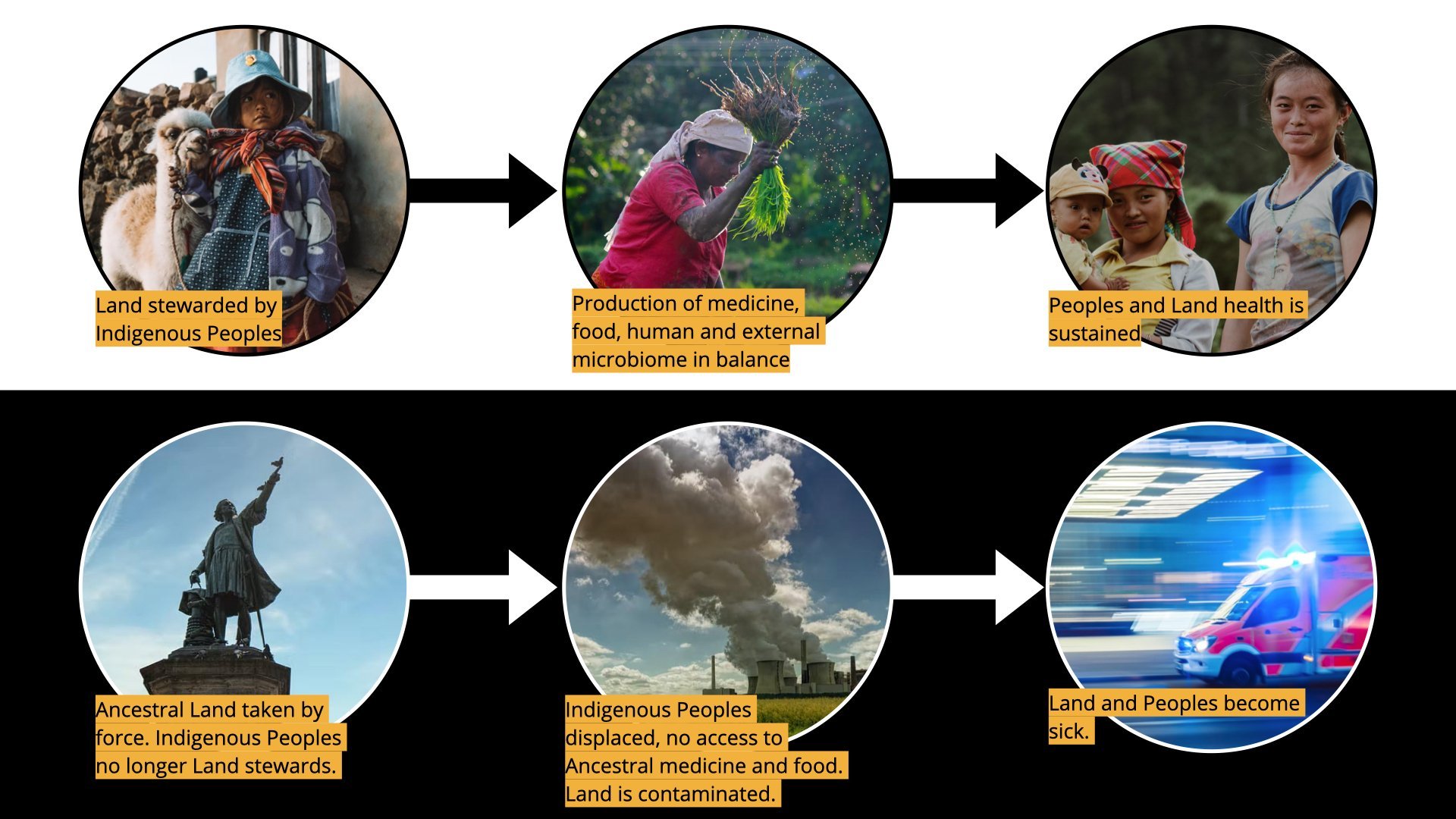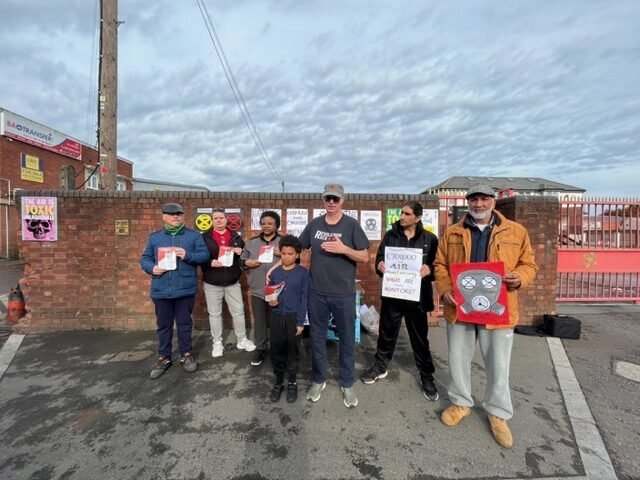Planetary Dysregulation & Indigenous Communities
INTRODUCTION
Indigenous Peoples are from all over the world and cover various and distinct cultures, languages, practices and knowledges. It is not a race nor is it a monolith. Colonisation has affected Indigenous Peoples in varied and unique ways, ripping some of us from Ancestral Lands, Peoples, and culture whilst others are currently fighting to keep their territories as colonisation continues to evolve.
There is no one way “to be” Indigenous, we are all striving in our own ways to stay connected to our Ancestors, Knowledges, and Principles all whilst experiencing continual colonisation and/or occupation.
“It must be acknowledged that Indigenous is a term that belongs to the white colonialist imagination and epistemology. Before colonisation we were simply People, not Indigenous. We became Indigenous as an artificial othering created by the European settler. Therefore, Indigenous is a term that some Peoples may reject or are trying to re-appropriate.”
LAND RIGHTS & INDIGENOUS PEOPLES’ HEALTH

CONSIDERATIONS
We are asking for the following considerations to help support Indigenous health as we transition further into planetary dysregulation.
Include Indigenous Peoples in key decision making processes and strategies.
Give Indigenous Peoples autonomy to govern their Lands, health, and life.
Acknowledge and honour Land treaties.
Stop colonisation and the invasion of Indigenous territories
Invest in “re-connection” activities to bring Indigenous Peoples back to Ancestral Land.
Invest in Indigenous Languages, Knowledges, and Land practices.
Learn to equitably collaborate with Indigenous Peoples rather than appropriate or extract without permission.
RELATED WORK
Whilst our work is concentrated in the United Kingdom, it is important that we learn from those already in practice. This work from Mexico can provide us with methods and learnings for our collective work in the UK. It can also help create mental infrastructure for healing imaginations not currently available.
The purpose of the Environmental Data for Health Justice board is to build confidence in how those seeking structural health justice outcomes through research, campaigns, and other forms of advocacy use data as a language to directly address health injustices and develop strategies for health justice.
This digital encyclopaedia is a working archive of Knowledges from Indigenous, subaltern, and Land-Kinned Peoples that, when justly worked, with are relevant in making urban spaces life sustaining and contribute to ending the dysregulation of our planetary systems.
These are working principles set forth by a group of Indigenous Peoples and Land-Kinned Peoples who gathered in the UK. We see this both as a starting point and an evolving process. These principles are the first iteration, as they interact with more Peoples they will change and evolve.
Tribal law scholar, Grace Carson writes in the first person about restoring the Indigenous identities and cultures to Los Angeles, where it has been systemically erased.
The pathways to poor health outcomes for Indigenous Peoples are multifaceted and interconnected. Here, we provide a brief overview of the devastating effects of colonisation, forced assimilation, displacement, and systemic oppression have on health.
The intention of this audio project is to discuss the links between systems and imaginations rooted in supremacy, the dysregulation of planetary systems, and the poor health outcomes being experienced by peoples who are racialised and minoritised.
What is often missing from the conversation is how environmental hazards, due to being an experience of stress and trauma can lead to mental distress.
Regeneration is a word used to promote positive benefit from construction and urbanisation. However, construction on old gas works sites without biologically adequate provisions are putting various communities across the UK at high risk for poor health outcomes.
As planetary dysregulation continues without systemic intervention, the threat to children’s health will continue to rise. It seems redundant to say, but we should prioritise the health of children as they are our future ancestors, who have imaginations and futures to fulfil.
Disability justice is inextricably linked to environmental justice, and we cannot truly have either one without the other. Disabled people were some of the first to sound the alarm about the damage that seemingly mundane products cause and whose voices need to be heard in the climate space.
This project was created to showcase the lived experience of how colonisation has affected Indigenous Peoples in varied and unique ways, ripping some of us from Ancestral Lands, Peoples, and culture whilst others are currently fighting to keep their territories as colonisation continues to evolve.
Nature can be a site of freedom, and an opportunity to extend our ideas of Transness outside of just humans: what if the ocean is non-binary? What could it mean to relate our genders to elements in nature rather than social norms?
This project was created to showcase the lived experience and expertise of the various marginalised, working-class communities being affected by the dysregulation of our planetary systems (climate change).
This report will focus on the pathways that are contributing to planetary dysregulation and their impacts on human health. With the purpose of updating policies that will support the work of environmental and health justice practitioners.
This report is the result of a co-designed and produced community-led scientific study highlighting the susceptibility of the Southall community and the need for stricter air pollution guidelines.
















